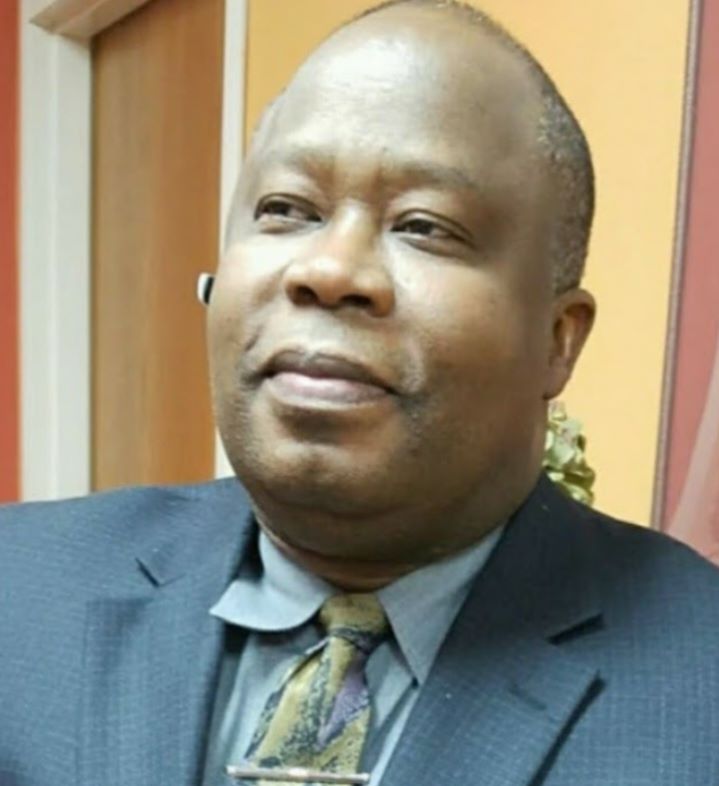PHOTO: The Author
By Austin S Fallah – A True Son of Bong Mines, Liberia, Africa and the Planet Earth Soil
In the leafy embrace of Bong Mines, Liberia, my narrative unfolds, echoing the stories of many Liberians who have been carved by the sharp edges of systemic inequality, particularly in concession areas.
Born into a reality where black racism, segregation, and a rigid class system were the unwritten codes governing the ebb and flow of societal dynamics, I found myself on the fringes of educational and social privileges.
A community mired in the clutches of these divides presented a so-called school that became emblematic of these schisms, the Bong Town High School.
For many years, access to this institution was an unattainable dream for children like me, not because of our intellect or yearning for education, but due to the immovable barriers of our parents’ social status, our uncelebrated last names, and our exclusion from a contrived societal cadre.
This all-consuming disparity was not a secret whispered amongst a few but rather an overt system known and experienced by numerous Liberians who found themselves hemmed in by the concession areas of our motherland, Liberia
It was in the aftermath of the 1980 coup, an event that fundamentally shook the foundations of Liberia, that we witnessed a remarkable inversion of fortunes.
This upheaval not only dismantled the reprehensible and unpatriotic systems of the previous decades but also set the stage for an era of inclusiveness and opportunity that once seemed beyond reach.
In this argumentative adda, I assert that the scars of this history should serve as a profound lesson, impelling Liberians to cherish and defend the principles of equality for all, ensuring that such deplorable segregation never re-emerges within our borders.
- The Roots of Inequality:
To fully grasp the ignominy of the divide, it is essential to understand its origins.
In Liberia, as in many parts of the world, colonialism sowed the insidious seeds of racism and classism, nurturing a social hierarchy that designated worth and potential based on arbitrary and unjust criteria.
In Bong Mines, this took the form of restricted educational access, where the fruits of knowledge were hoarded behind the gates of institutions such as Bong Town High School, guarded by the prejudices of the few.
2. Life in the Shadow of Segregation:
The effects of this sequestration were far-reaching and debilitating.
Those of us relegated to the outskirts of these opportunities were not simply deprived of education but also of hope.
Our daily existence became a testament to the conviction that there were limits to our dreams, confines within which we were expected to subsist and never excel.
This toxic perspective pervaded every facet of our lives, instilling an inherent sense of inferiority that many struggled to surmount.
3. The Tumultuous Turning Point:
The 1980 coup proved to be an inflection point in our collective history.
While it brought with it its own turmoil, it effectively dismantled the stranglehold of the old guard, opening the gates of educational institutions to all, irrespective of their antecedents.
This shift in power dynamics resulted in a more democratic and inclusive environment, challenging the established narrative by empowering those who were deemed unworthy by the defunct regime.
4. Legacy of Change:
The consequences of this newfound egalitarianism are palpable.
Those once marginalized can now be found at the forefront of various spheres, contributing significantly to the motherland and the global diaspora.
The lessons arising from their experiences emphasize the importance of equal access to education and the potential inherent in every individual, regardless of their origin.
The proliferation of success stories showcases the remarkable capabilities of those who were once silenced, cementing the argument for an inclusive society.
5. Moving Forward with Vigilance:
While progress has been made, we still stand on a precipice where the gains of the past can easily be eroded.
It is thus imperative that we remain vigilant and refuse to regress into the shadows of segregation and discrimination.
Liberians must unite in fostering an ethos of empathy and equitable treatment, recognizing that our collective prosperity hinges on the nurturing of every citizen’s potential.
The journey from a segregated Bong Mines-Bong Town, where education was reserved for the selected few, to a more inclusive Liberia, where the once invisible are making indelible marks across the globe, is a testament to the indomitable human spirit.
It is a clear repudiation of the dehumanizing systems of the past and a clarion call for continuous vigilance against the resurgence of such inequalities.
As Liberians, we have the responsibility to safeguard the dignity of every individual by crafting an environment where segregation and I am better than you have no refuge.
Through shared tenacity and passion for equality, we can ensure that the dark days of separation remain a fading echo, supplanted by the harmonious symphony of collective progress.
From the trodden paths of Bong Mines to the vast expanses of global influence, the narrative of Liberia’s journey is still being written.
May it be inscribed with the ink of equality, where every Liberian is afforded the opportunity to rise and claim their rightful place in the annals of our evolving story.
Our past may be marked by the scars of division, but our future shines with the promise of unity and shared destiny.
Together, we can build a united Liberia undivided nation standing tall on the pillars of equal opportunity and unwavering in its pursuit of justice for all.

